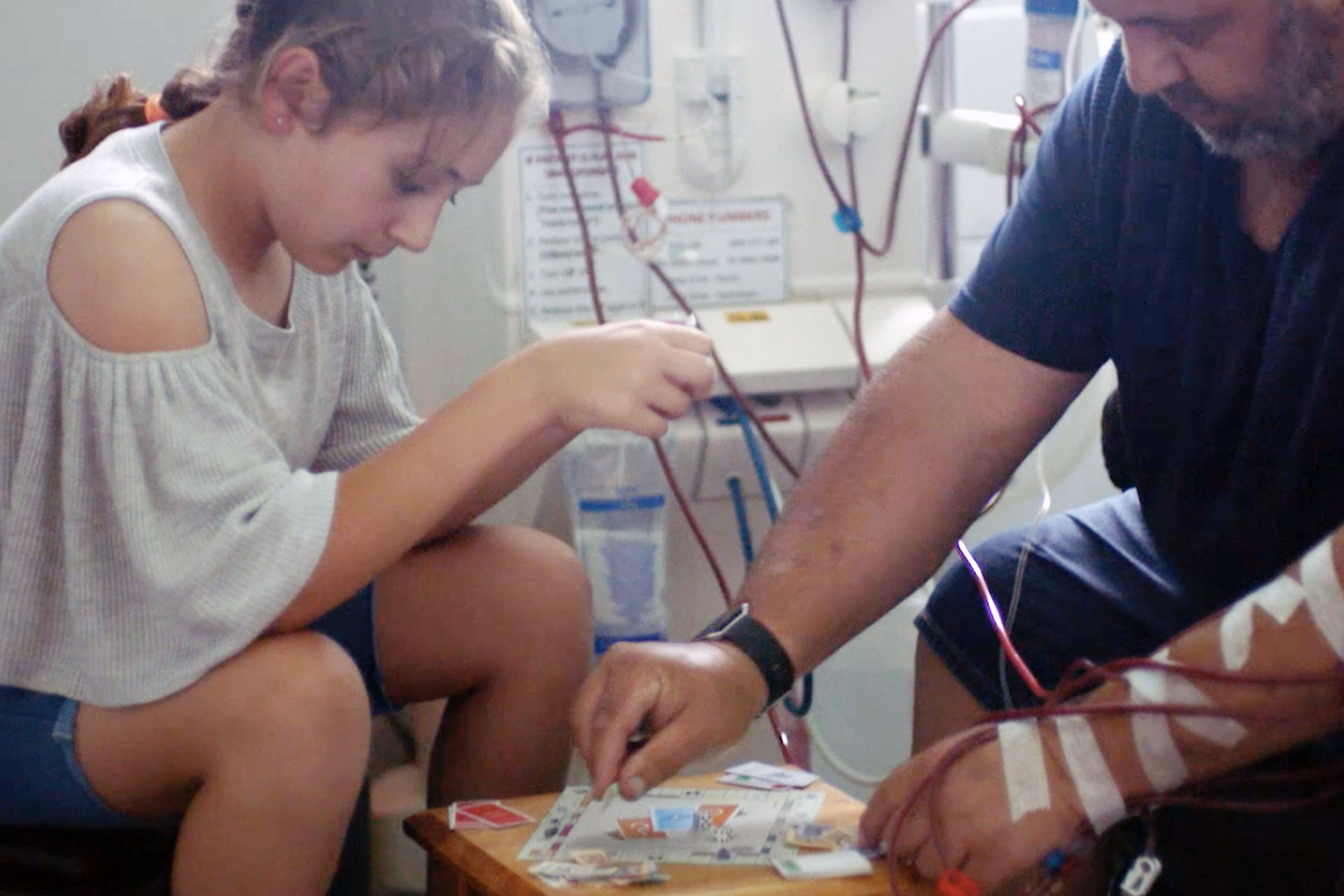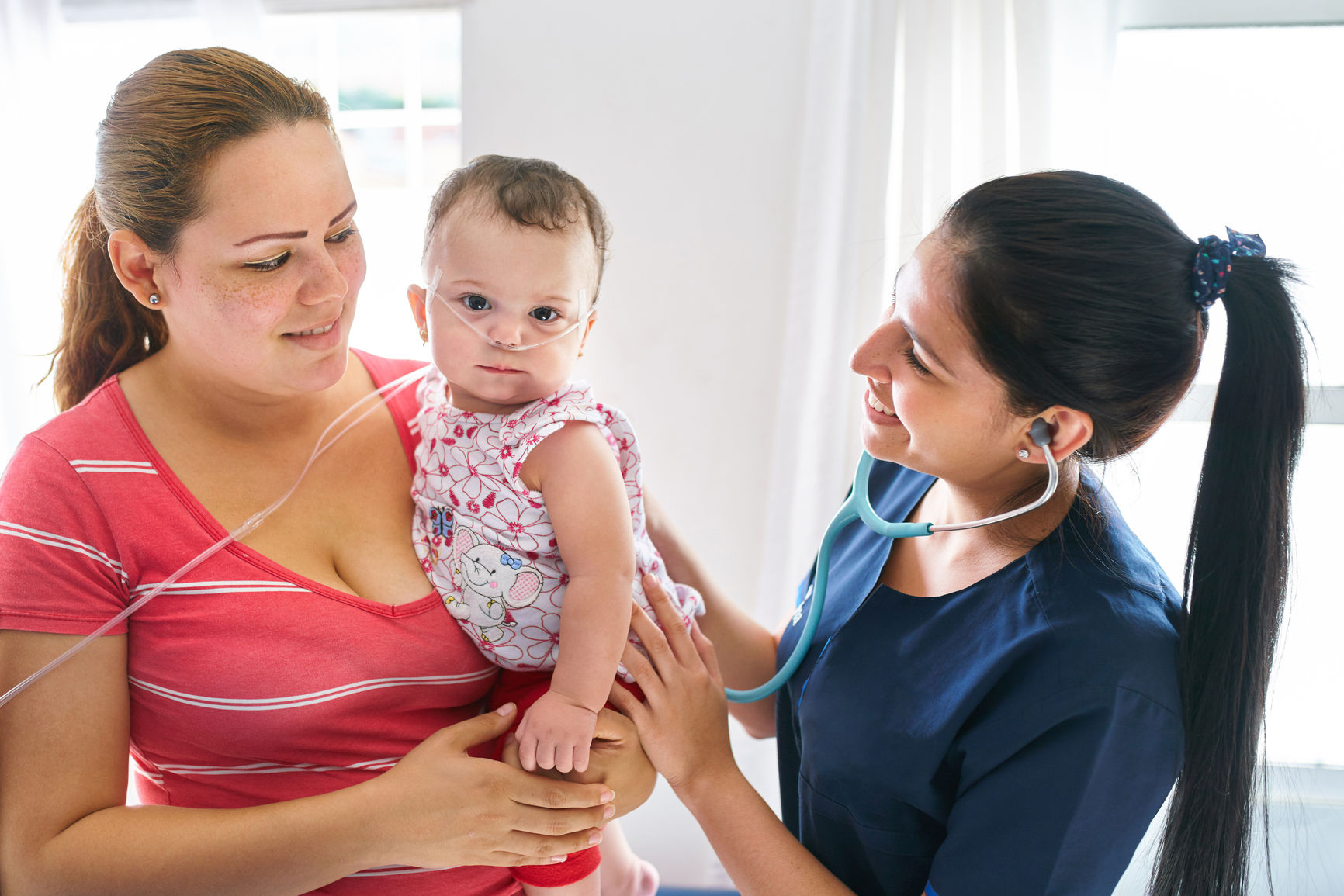-
Your child eats well and is fairly active, right? It may be hard to believe that there is anything to worry about, however studies show parents may look at their child’s weight through rose-tinted glasses. So how can you tell if your child is a healthy weight?
Why it can be hard to tell if your child is overweight
A study conducted in the the UK showed parents of overweight children - 91% of mothers and 80% of fathers - believed that their children were a healthy weight. But why? While there is no one reason, there may be societal factors at play making it difficult for a parent to tell if their child is a healthy weight just by looking at them.
For example, recent studies have shown that the rate of obesity in Australia has tripled from the mid-1980s to mid-1990s, and in 2015, 1 in 4 Australian children aged 2 - 17 were classified as overweight or obese. As being overweight has become more common, our frames of reference for what a healthy weight looks like seem to have shifted, possibly making it more difficult for parents to spot an unhealthy shift in weight in their children.
MORE: Looking for healthy lunchbox snack ideas? Here's our 10 from recipes kids love
How to tell if your child is a healthy weight
If you’re interested in knowing if your child’s weight is in a healthy range, the quickest way to check is to measure their BMI. While the BMI tool can provide a general understanding of their weight range, keep in mind the tool doesn’t account for weight distribution, age, ethnicity and gender.
Like adults, children come in all different shapes and sizes. If you believe that your child has a problem with their weight, the best course of action is to consult your GP. They will be able to give you an accurate picture of your child’s health as well as personalised advice.
Talking to your child about their weight
If your child does have a problem with their weight, deciding how to talk about it with them can often leave parents feeling like they’re between a rock and a hard place. Many will understandably have concerns about making their children feel self-conscious or ashamed of their bodies, or even scared they will trigger eating disorders later in life. However, saying nothing can feel like you’re missing an opportunity to address what could become a serious health issue later on.
So, what to do? One recent study suggested the best approach might be not saying anything at all. By focusing instead on creating healthy behaviours for the whole family and being a role model for your children, you can encourage them to live a healthier life, while avoiding any painful conversations that might have repercussions further down the road.
If you do decide to speak to your child about their weight, the Sydney Children’s Hospital Network advises parents not to use any overly negative language, such as, “Don’t you think you should…” or “You shouldn’t be having that.” Steer clear of any terms that imply moral judgements, like certain foods are “good” or that fat people are “bad” and keep the focus on their health rather than weight loss.
MORE: Read more about how to encourage active, healthy kids
Tips for healthy changes
For any healthy behaviour changes, it’s important to include the whole family. It’s going to be tough for the kids to stay on track if mum and dad are hanging out on the couch all weekend. Similarly, if the changes only apply to one child and not their siblings, this can lead to feelings of being singled out, or like they’re being punished. With that in mind, here’s some ideas to get you started:
- Make physical activity fun: Get your kids involved in physical activities they enjoy, but don’t put too much emphasis on competition. While some kids may thrive in competitive sports, others may find the pressure and expectation off-putting. To make the change sustainable long-term, keep exercise fun and stress-free for them.
- Have regular meal and “snack” times: This will help your children learn that there are set times for eating that should be adhered to.
- Limit use of the car: Encourage walking or biking to school or a friend's house whenever possible. You could even look into setting up a Walking School bus if one doesn’t already exist in your area.
- Eat a healthy and balanced diet: It can be trying to get kids to eat their fruit and veggies, but getting them over the fear now will set them up well for adulthood. Getting them involved in picking and preparing fresh food (if they’re old enough) can help with these battles.
Every child, and every family, is unique. If a particular change doesn’t take straight away, you might need to try a few different things until the new behaviour becomes a habit. Don’t be discouraged if it takes a while - just remember to try, try again. And call in outside help such as your GP or school nurse who can provide extra support if you’re feeling out of your depth.
Medibank has partnered with the Stephanie Alexander Kitchen Garden Foundation to create Healthy Kids; a platform designed to get kids growing healthy habits for life. If you’re looking for more ways to get your kids involved in the garden or kitchen, click here.
How do I know if my child is a healthy weight?

-
Innovating for members living with chronic disease
Medibank is supporting our members living with chronic diseases such as heart disease, arthritis, and diabetes, through our CareComplete programs.
-
Medibank’s palliative care at home trial
Giving our customers choice in where they would like to receive their end-of-life care can provide dignity, privacy and help them retain control over the care they receive.
-
How your phone habits affect your sleep
And what it means for your mental health, hormones and more.
-
Medibank trialling haemodialysis at home
Giving members with chronic kidney disease more choice
-
The origins of western and eastern medicine
Two schools of thought explained
-
Almost half of hospital patients are looking for more support
Find out how Medibank is helping.
Subscribe to receive the best from Live Better every week. Healthy recipes, exercise tips and activities, offers and promotions – everything to help you eat, move and feel better.
By clicking sign up I understand and agree to Medibank's privacy policy






